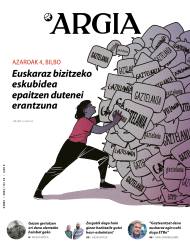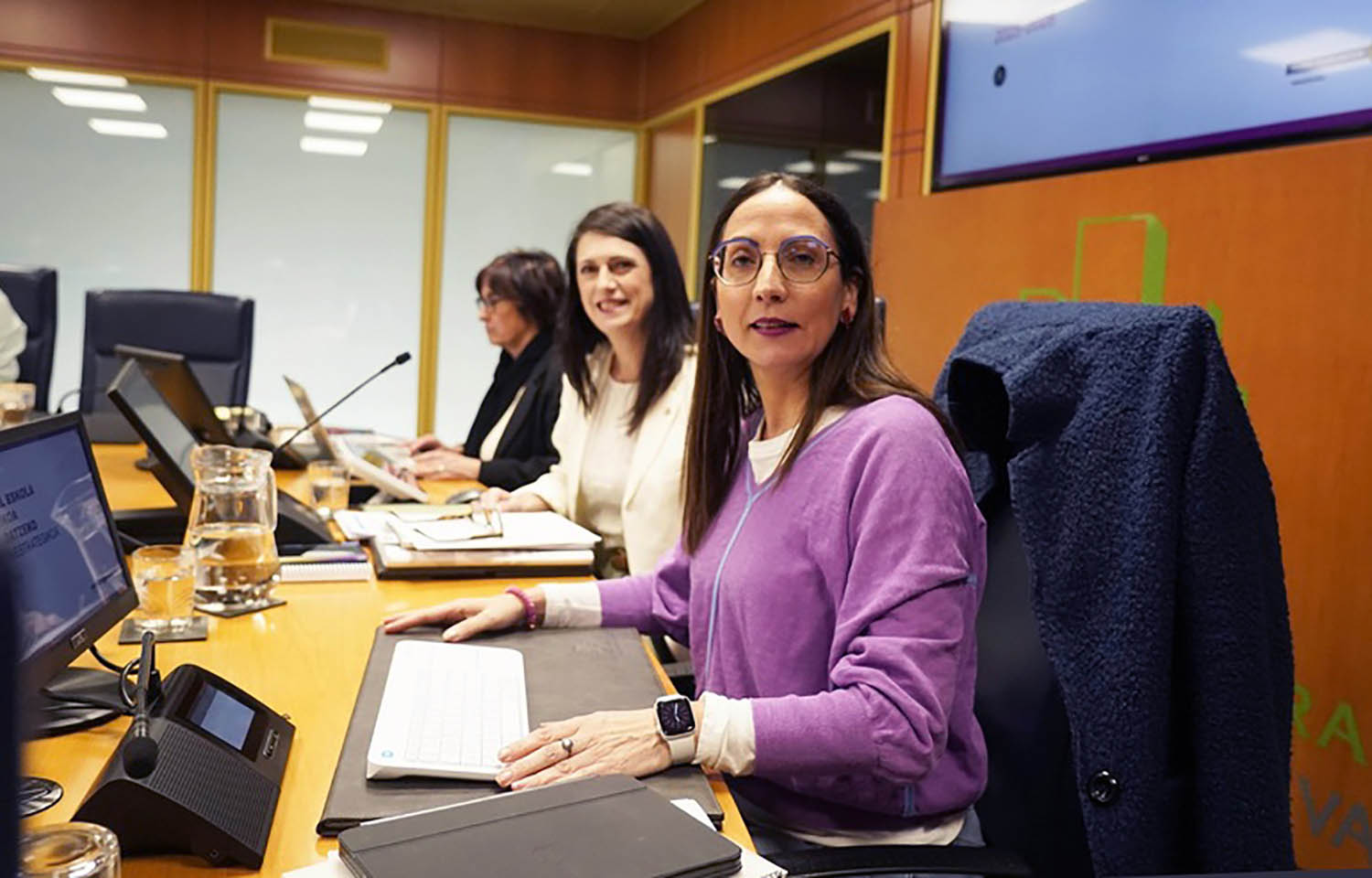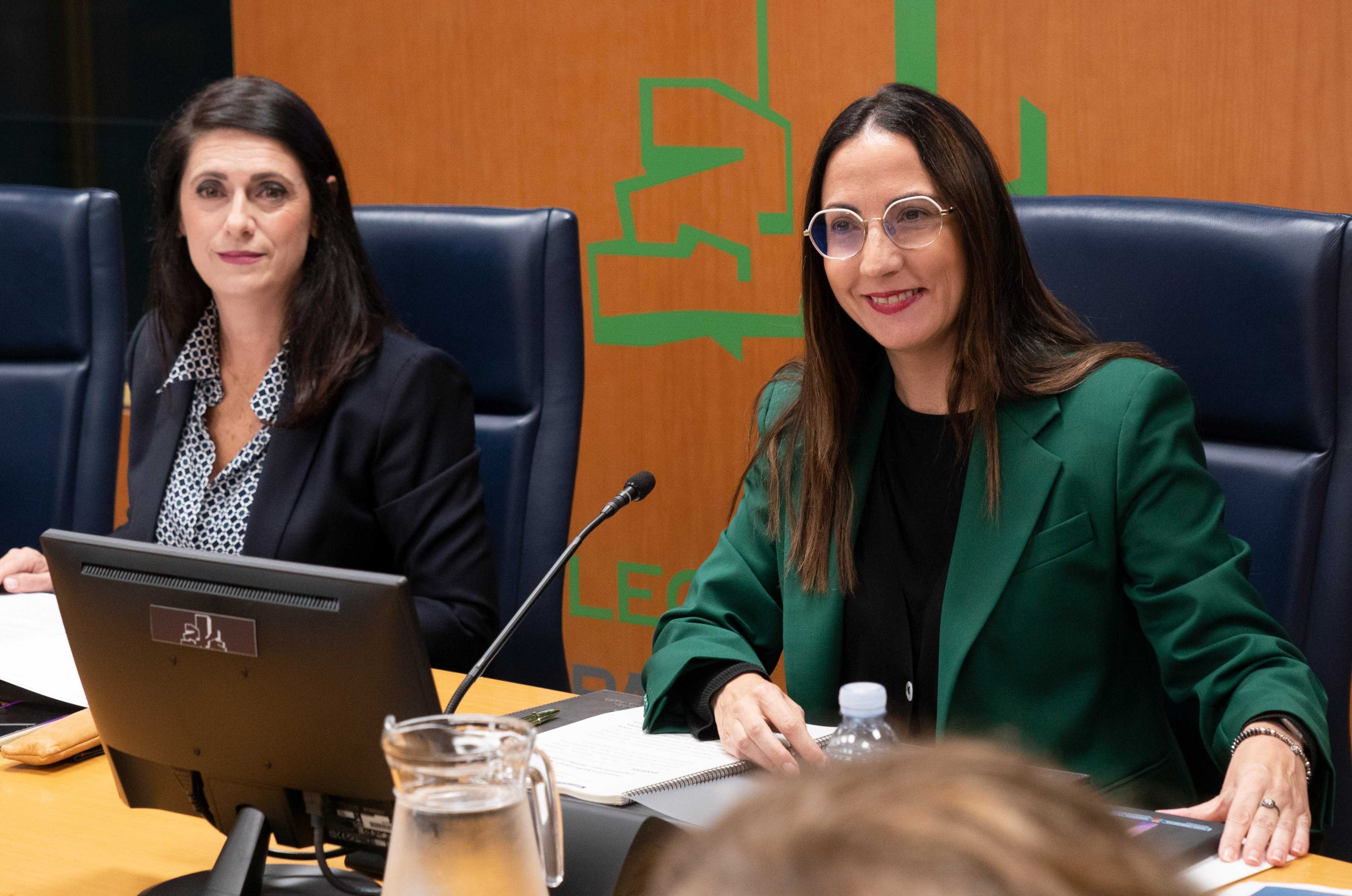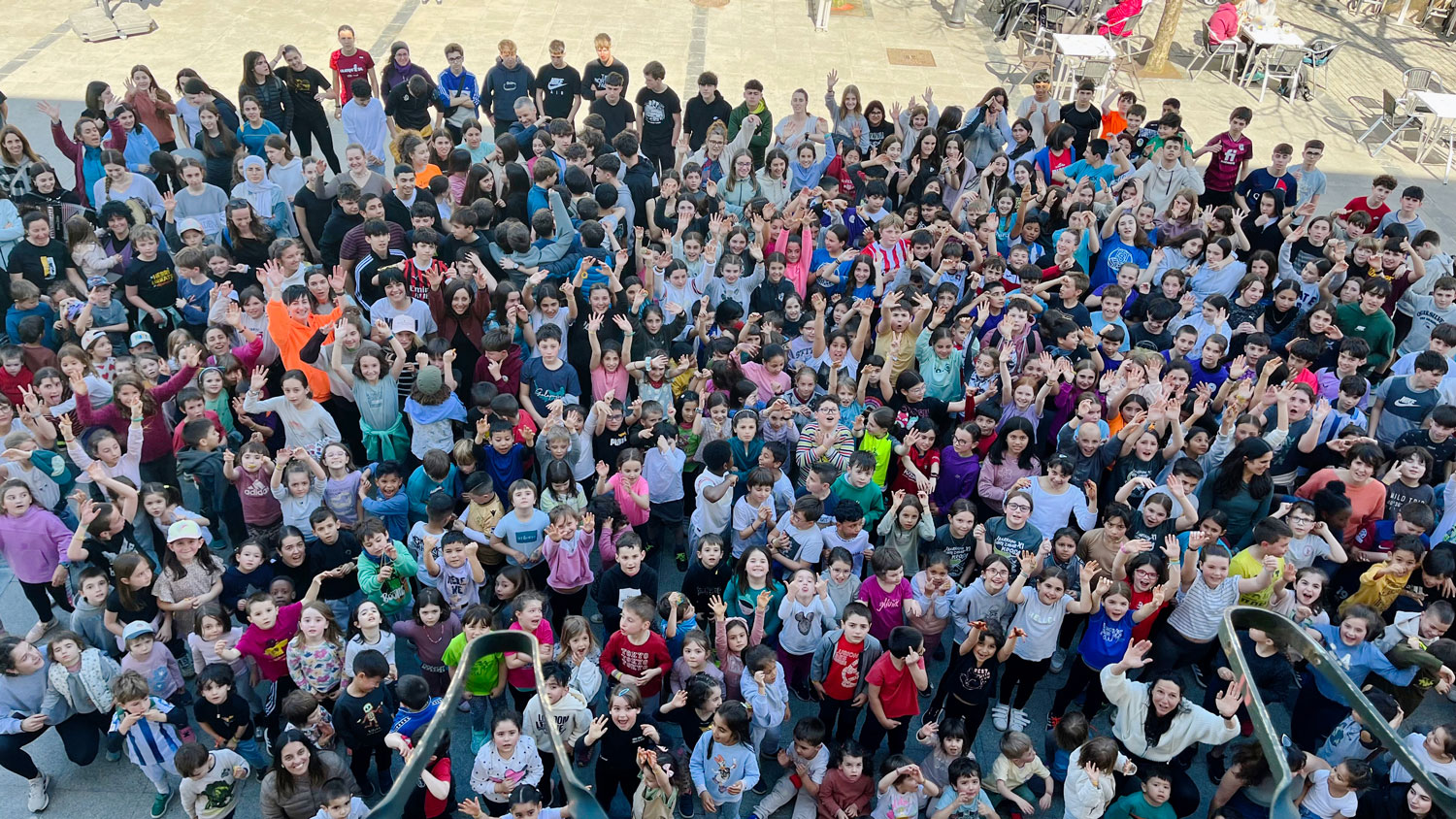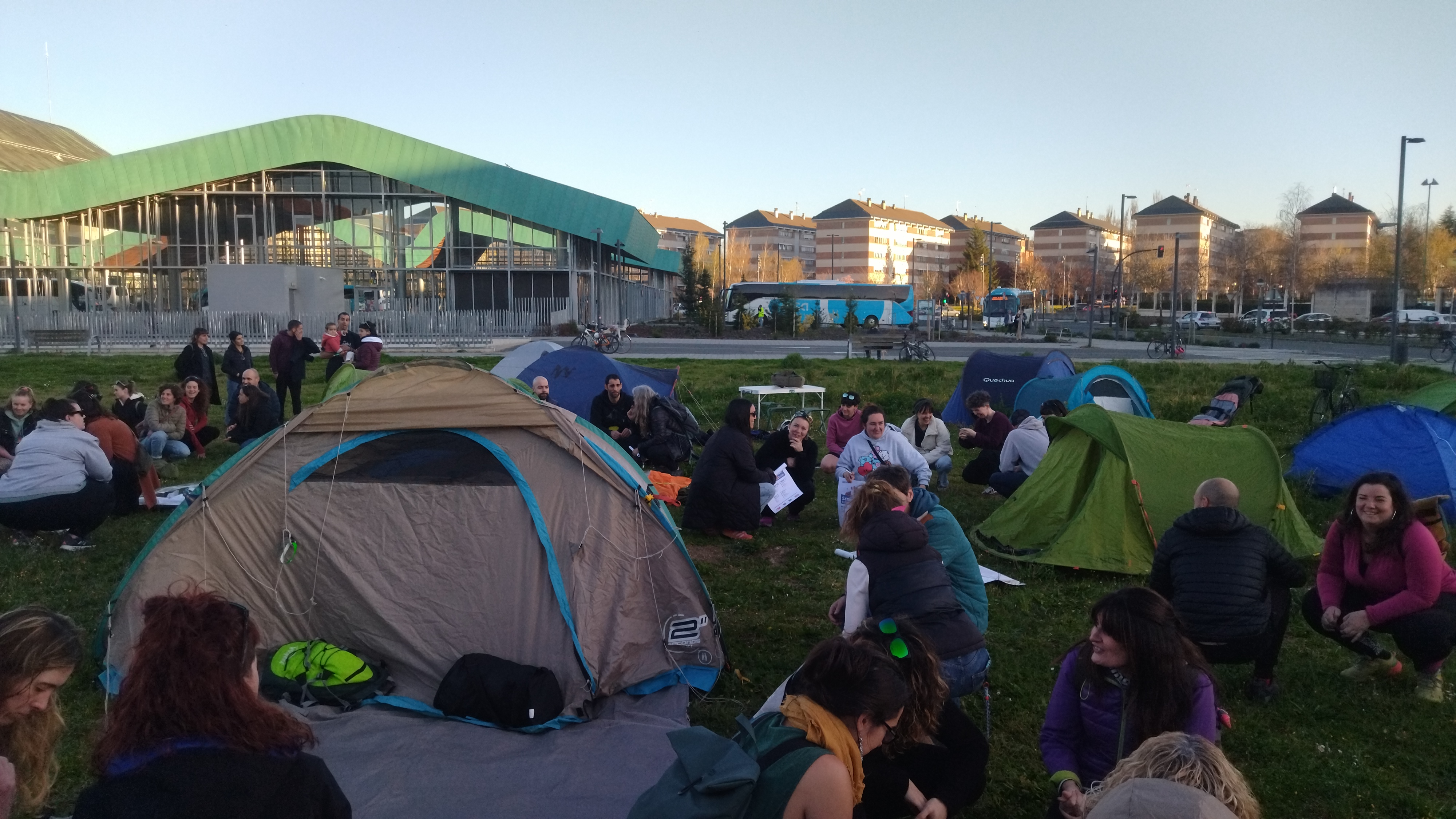"It is abnormal that children's schools and children's education have so few men"
- Why are there so few male teachers with children from 3 to 6 years old in Early Childhood Education? Let's not say with children ages 0 to 2 in children's schools. We have met with two generations to talk about gender roles, care, misgivings and models for children: Rafa Lizeaga, professor of Early Childhood Education until his retirement, and Axi Iriarte, educator of children's schools for five years. "When we see someone very male, we can think that he's not going to have a passion for care."
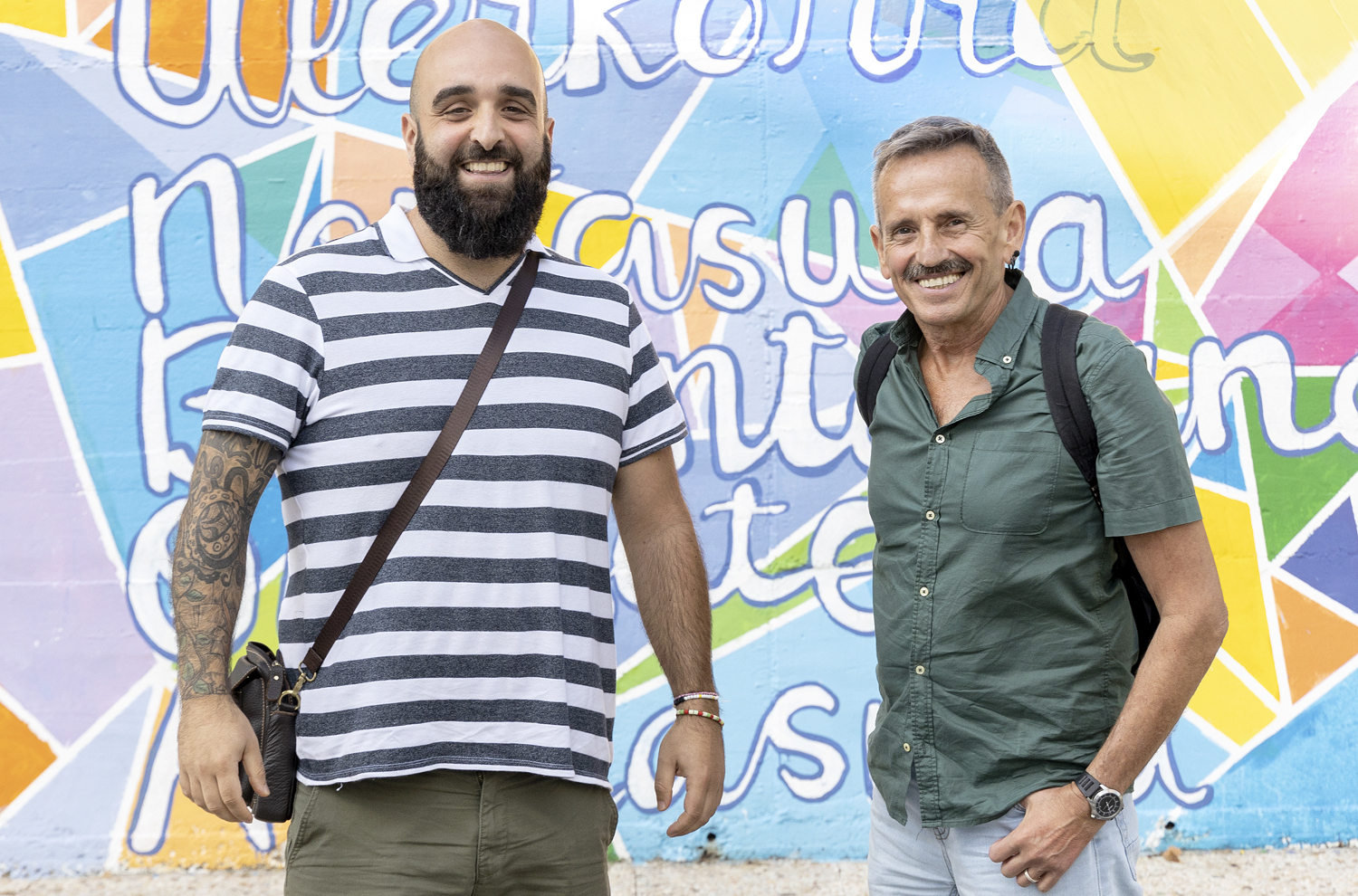
Rafa Lizeaga started in Early Childhood Education in 1984 and retired in 2015 at Amara Berri College in Donostia. Axi Iriarte studied fourteen years ago and has been in substitutions in children's schools for five years.
The proportion of men studying in children's school or early childhood education has remained in the last ten years, with very few men choosing the profession. Has nothing changed on this issue for so many years?
Axi Iriarte: Think about it, when I studied fourteen years ago, the teacher told us that as men we would have more facilities, because it was a change in children's schools, but we're still the same. It is curious, in other feminized studies focused on care (nurses, nursing assistants, geriatrics…) men have entered naturally, but both in us and in the dining rooms, there have been hardly any changes, I have been in both and I am almost always the only man. I have perceived the change in the attitude of others, as they welcome me as a caregiver: before they had more mistrust for me, especially the grandparents of the children.
Rafa Lizeaga: Society has changed a lot in different areas, but that is where we remain. In the Early Childhood Education studies, of twenty-five students, six would be men. And then, in my school, I was the only man of thirty Early Childhood Education teachers.
Axi Iriarte: "I've had a hard time becoming aware that I like care tasks and accepting them, recognizing that I have a gift for care, it seems that it's misplaced"
How do gender roles influence, consciously and unconsciously, the choice of our professional careers? How did you end up in those works?
Lizeaga: When I started, Early Childhood Education was called Preschool, it was also not a school, and they also called it maternal school, maternal school, linked to my mother; when I chose those studies I heard “this is women’s work” more than once. In the pre-primary stage, an educational function was not recognized (and still is not common today), and we relate child care to women. I studied electronics and when I started teaching after military service, I was clear that I wanted to do Early Childhood Education, seeing how fundamental this first stage is.
Iriarte: I wasn’t clear about what I wanted to study, I made the kitchen first, then Early Childhood Education, I started making oppositions to be jealous… My goal was to have as many job opportunities as possible, but over the years I have realized that I like care tasks and it’s been hard to recognize them, recognize that I have a gift for care, because as a man they don’t prepare us for care, and even seem to be poorly seen or are.
Is the selection of “men’s professions” by women, the selection of “women’s professions” by men seen as progress? How do you experience your professional identity?
Iriarte: Surely many will see pejorative, I instead proudly live my professional identity, have always drawn me the unmarked paths, the challenges, and I think both are a step forward on the road to social equality.
Lizeaga: Access to prestigious professions or professions is something that women have achieved through the struggle they have made, while the presence of men to a undervalued profession is irrelevant in the eyes of society, perhaps men have not taken that step.
For society, doesn't young children have enough merit and value?
Iriarte: That's right, although in the current context we are even more important, because children spend many hours with us, from very young. I would say that in general the figure of the teacher has been losing prestige and in the pyramid we are the last of us: the university professors, those of the institute, Compulsory Secondary Education, Primary Education, Infant Education and then the children's schools, in prestige and in salaries I see that order.
In fact, in the directions and in the upper teams there are more men. Do men seek more prestige, better salaries and leadership positions?
Iriarte: Children's schools work fewer men than they study. Among the people who are studying, at least one of them is man per class, that is, 4%, but then 4% do not end up working in kindergartens, ends up elsewhere. I've been making replacements throughout Gipuzkoa and I've been the first or second man they've had so far in large day care centers, and in small day care centers, the first male educator they've had so far. We are in 2023…
Lizeaga: Also in Early Childhood Education, three of the six men we started staying at that job, the rest did at higher levels. When Secondary Education was founded (1996-97), for example, many men passed from Primary to Secondary. Many men moved to management positions, to higher levels, but not because of the salary (when I started working for Early Childhood Education we paid more), but because of the roles: specializations started then and men chose gymnastics, there were very few women giving the sound. Or I had to choose a coordinator, and the team would immediately pick me up, and say, "Do you have to be a coordinating man among so many women?" They were really good people, people ready, but we got those things really stuck.
Rafa Lizeaga: "Some stereotypes are very embedded, conceptually so they have learned, but when they live what emerges from these schemes they live naturally."
What characteristics and competencies should the Children's School and the Teacher of Child Education have? Are very masculine attitudes (from the point of view of hegemonic masculinity) not related to the proper care and education of children?
Iriarte: Just like children's schools, there are more male and female women working, men working the same. As an educator for young children, you must convey security to children, patience, tenderness, joy…. You also need to be a caregiver and funny. When we see someone very masculine, we can think that he will certainly not have a passion for care, and that is what we see in some men who become parents: his role is to set limits and do activities with the child, but tertulias, the most emotional arrangements, the conflicts that have been going on for a long time… are managed by the mother and men move. I, by my very nature, work in kindergarten in a simple and natural way, but it can cost many men.
Lizeaga: If your “virility” is very marked, you may not choose this profession, but I am very far from it. I have always managed very well and although at first there may be some mistrust on the part of the parents, I have received good treatment from my colleagues. Children have stuck with me easily, because in addition to some way you are special, a rare specimen, the only one! Like men, there are also women who transmit traditional roles, and I find it more important what values we convey, what we live in the classroom every day.
Perhaps then it is not a matter of masculinity, but men flee from care tasks…
Lizeaga: That is a reality, yes.
Iriarte: I believe that in today’s society, sensitive men, rich men, caregivers… are not poorly seen, but the changes come very slowly, and in the case of some men who considered me referents and modern, then I realized that in their roles with their partners and with their children things have not changed so much. I would say that the hours of care have been equated more by necessity (if both parents work, for example), but that involvement is not the same and the emotional work mentioned above, the conversations with the child, etc. Most women continue to do so.
Axi Iriarte: "It's also important what colleagues transmit. If I go to sleep the child and the partner says ‘no, I will fall asleep’, you are sending a message to the child.”
Do children take the teacher differently? Do they perform any role distribution?
Lizeaga: At Hernani's Gay-Mur School, we brought together two classrooms and a teacher and I worked together, and there were no differences when the children went to one or the other. Working as a couple, in class we took on different roles in a conscious and dialogued way, but not roles of woman and man, but of another type (one for example promoted the autonomy of the child, the other supported the child…).
Iriarte: As the children are so small, some have had the initial contact for me, because of their appearance (I'm big, beard, tattoos… and maybe they don't have them around them), but they quickly perceive their energy and half an hour are already happy with me. They are very small and children are still not contaminated.
Lizeaga: They don't even get contaminated when they live that reality. If they had the concept that, for example, to keep an eye on me, they would say it is a matter of girls, and I would say, “Well, I have an eye, then what am I?” or they would say that to be a teacher I had to be a woman, although they knew me. Some schemes and stereotypes are very integrated, conceptually thus “learned”, but when they live what emerges from these schemes they live naturally.
You are an example for the students. Is it enough for a man to become a teacher to cope with certain gender roles, or is it also important what values that man has and how he understands co-education?
Iriarte: I imagine that only by being a man, for them I am a different figure, and we are an example, yes, one more, different from what you're used to, and that's good. I want to be a warm, happy, caring, safe and fun model for them. And I want to show you that we do the same thing about women and men and that we can do it in a warm, natural way in a group, that it doesn't matter if I'm in that moment to fall asleep or if the partner is.
Lizeaga: More important than being a man or a woman is what we convey, what values, many things we all convey, consciously and unconsciously, and that's what children receive. By 4-5 years old, a lot of stereotypes appear in daily life, as pink is the color of the girls and a lot of examples very vaccinated, it is a constant job to question all this with children, both by men and by women.
Iriarte: It is also important that colleagues unconsciously pass on. If I go to sleep the child and the partner says “no, I will sleep”, you are sending a message to the child. When I was at the children's school in Orereta, on my first day the children let me sleep and my uncertainties became apparent (the change of packages and sleeping requires a lot of security for the child in relation to that adult), but the children slept perfectly and that experience showed me the importance of the messages we give to the children: if the referent of the children trusts in you, the children will also trust you.
Rafa Lizeaga: "It's suspicious to see a man working with young children. ‘As women’s work, what does a man do here?’ says our unconscious.”
Steps have been taken in Finland and Norway to increase the presence of male teachers in Early Childhood Education, convinced that the formation of joint groups of teachers is beneficial.
Iriarte: I've been saying that for a long time, and here too you can do it gradually and gradually, institutions should help move towards that parity, especially in children's schools, but I have a hard time imagining how to do it: if 100 people present themselves to oppositions and 98 of them are women, it makes sense for them to have more opportunities. I would like to know exactly how they have done that in Finland and Norway, in the fairest way possible.
Lizeaga: I think it would be very important and enriching if there were more mixed groups of educators of 0-6 older people. It is abnormal that the male presence in children's schools and in child education is so low. And beyond gender, in relation to race, functional diversity, etc., it is enriching that there is diversity among faculty. All these realities, which are fortunately becoming visible in society, should have a presence in the classroom, because in daily life we find a very diverse society.
According to the research I have read, in Child Education not so much, but in children's schools families have more mistrust and fear if their child's educator is male, they prefer female caregivers.
Lizeaga: I've been stunned, mistrusted, but when I was going to retire, when I was in the 3-year-old class, a mother told me. “At first I was afraid to see a man in the room, but now what a shame you give me to go.” In short, it is striking to see a man working with young children, he is suspected of being a paedophile… “Being women’s work, what does a man do here?” says our unconscious. In England, for example, the teaching of Child Education to men was banned for many years.
Iriarte: In children's schools, suspicion is also common, because 15 years ago, ignorance blends with our fears. In the hospital I am a jealousy and there I also see it, but the reverse: before the jealousy was almost always men, because it is a very physical job, but in these years the work has been mechanized, modernizing and changing the proportion of workers, and yet, when a woman is going to move the patient or to change position, many take the woman jealous with mistrust. Positive experiences and time solve it, and for that we need more men as educators of young children.
What challenges do you see in nursery schools and early childhood education?
Iriarte: Mostly three. On the one hand, to value our work more (and to recognize that it is not a mere surveillance, but also pedagogical and accompanying); on the other hand, the eternal struggle, to maintain or reduce the class ratios to be able to give a more personalized attention; and, finally, that the two above allow us to educate respecting the nature and peculiarities of each child, and not automatically as factory pieces.
Lizeaga: In Child Education also in a similar way: to value and believe that the stage is educational; to decrease ratios (for example, that of the pedagogical couple, to be able to work in the same classroom two educators is a very enriching experience); to deepen the formation; and, as we have claimed in this interview, to increase the representation of men among the teachers.
.jpg)
.jpg)
Public education teachers have the need and the right to update and improve the work agreement that has not been renewed in fifteen years. For this, we should be immersed in a real negotiation, but the reality is deplorable. In a negotiation, the agreement of all parties must be... [+]
Lehengai anitzekin papera egitea dute urteroko erronka Tolosako Lanbide Heziketako Paper Eskolako ikasleek: platano azalekin, orburuekin, lastoarekin, iratzearekin nahiz bakero zaharrekin egin dituzte probak azken urteotan. Aurtengoan, pilota eskoletan kiloka pilatzen den... [+]
Garai kuriosoak bizi ditugu eta bizi gaituzte, zinez. Hezkuntza krisian dela dioten garaiak dira eta, gutxien-gutxienean, aliritzira, ba aizue, 2.361 urte ditu gaurgero boladatxoak.
Ez zen ba debalde joan Aristoteles bere maisu maite Platonen akademiatik lizeo bat muntatzeko... [+]









